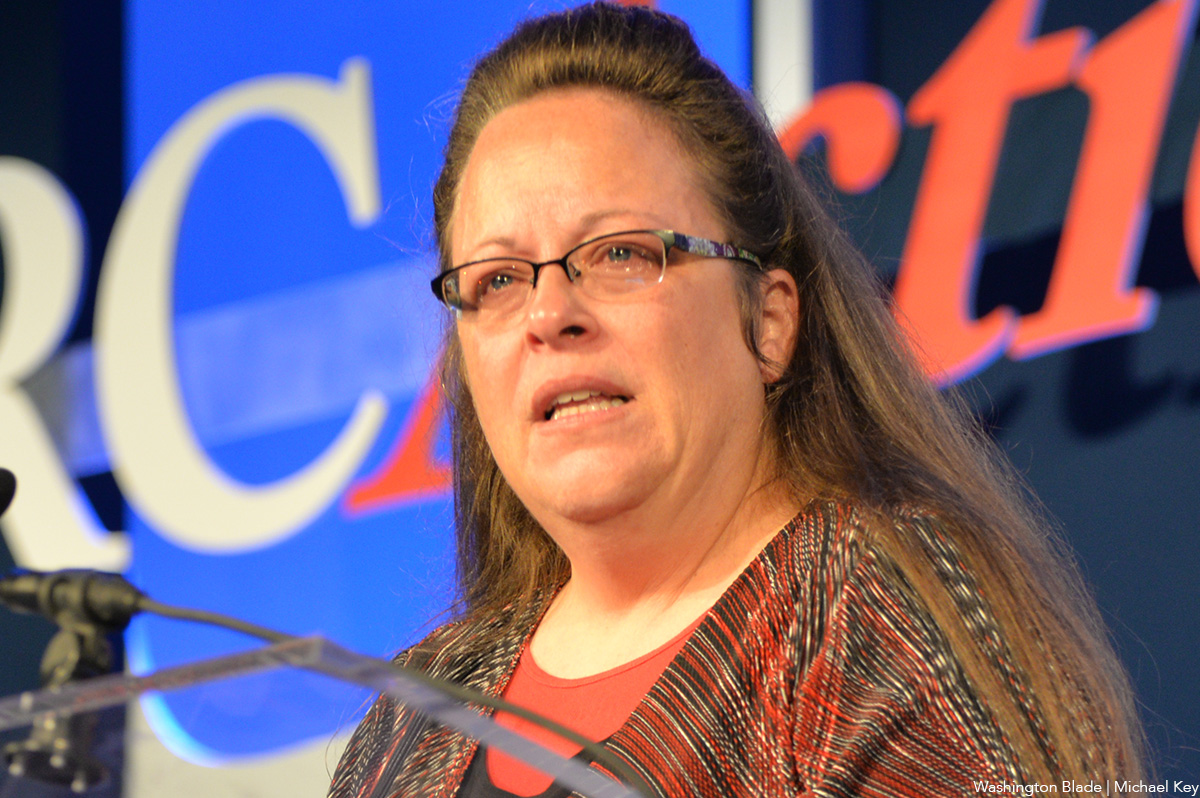Kim Davis and the Supreme Court: A Landmark Case in Marriage Equality
The name Kim Davis has become synonymous with a pivotal moment in the ongoing battle for marriage equality in the United States. As a county clerk in Kentucky, Davis made headlines in 2015 when she refused to issue marriage licenses to same-sex couples, claiming that doing so would violate her religious beliefs. Her actions led to a significant Supreme Court case that redefined equality and civil rights in America, highlighting the complex interplay between personal belief and legal obligation.
The Background of Kim Davis and Her Actions
Kim Davis, who served as the county clerk for Rowan County, Kentucky, became a national figure when she was jailed for contempt of court for defying a federal court order to issue marriage licenses to same-sex couples following the Supreme Court decision in Obergefell v. Hodges. This historic ruling legalized same-sex marriage across the United States, marking a major victory for LGBTQ+ rights advocates. However, Davis refused to comply, asserting that issuing licenses to same-sex couples would conflict with her religious convictions. This position sparked intense public debate and brought various legal and constitutional issues into the spotlight.
The Legal Implications of Davis’ Refusal
Understanding the legal ramifications of Kim Davis’s refusal requires a look at both states’ rights and federal authority. While the Supreme Court granted marriage rights to same-sex couples, individual states and local officials are often left to navigate these decisions in practice. Davis’s stance highlighted the tension between individual beliefs and the rule of law, a conflict that remains relevant today.
In 2016, after serving approximately five days in jail, Davis was released but maintained her position, igniting further discussions about the extent to which personal beliefs should influence public duty. This raises critical questions about religious freedom, civil rights, and the responsibilities of public officials.
The Supreme Court Response
The Supreme Court, while not directly ruling on Davis’s case, set a significant precedent in Obergefell v. Hodges. The ruling affirmed that same-sex couples have a constitutional right to marry, effectively superseding state laws that would deny them this right. The court’s decision was rooted in the principles of equality and dignity, emphasizing that the right to marry is inherent to all individuals, regardless of sexual orientation.
Public Reaction and Implications for Future Cases
Public reaction to Davis’s actions was polarized. Supporters viewed her as a martyr standing for religious freedom, while opponents criticized her for denying civil rights to others based on personal beliefs. This division is indicative of a larger societal struggle over LGBTQ+ rights and religious liberty.
As implications of Davis’s refusal play out in courts and communities, we see an ongoing debate regarding the balance between religious freedom and equal rights. Subsequent court cases have sought to address similar issues, often citing Davis as a precedent in discussions about the limits of personal belief in public service.
The Legacy of Kim Davis in Modern Legal Discourse
Kim Davis’s case will likely be studied for years to come, not only for its immediate effects on marriage laws but also as a touchstone in discussions on freedom of expression, religious rights, and governmental duties. As states continue to navigate these complex waters, the conversation around how personal beliefs intersect with public responsibility will remain crucial.
In recent developments, with ongoing petitions and movements to revisit marriage equality laws, the conversation around Davis’s legacy persists. Many are calling for the Supreme Court to affirm and protect the precedents set by Obergefell v. Hodges while simultaneously addressing cases that echo the Davis scenario, highlighting the delicate nature of rights and beliefs in a diverse society.
Conclusion: Navigating the Intersection of Belief and Law
As the landscape of marriage equality and religious freedom continues to evolve, individuals like Kim Davis serve as reminders of the complexities at play. The intersection of personal belief and public service creates challenges that call for ongoing dialogue and legal scrutiny. Understanding these issues not only helps in grasping the past but also in shaping the future of civil rights in America.








